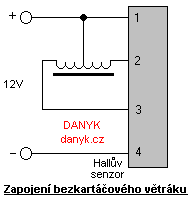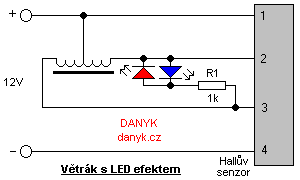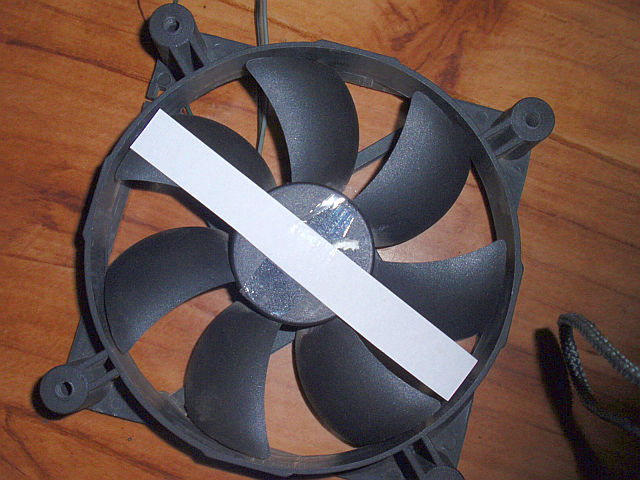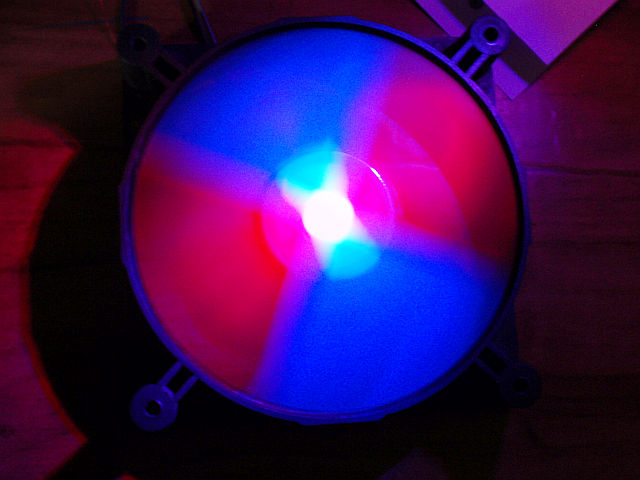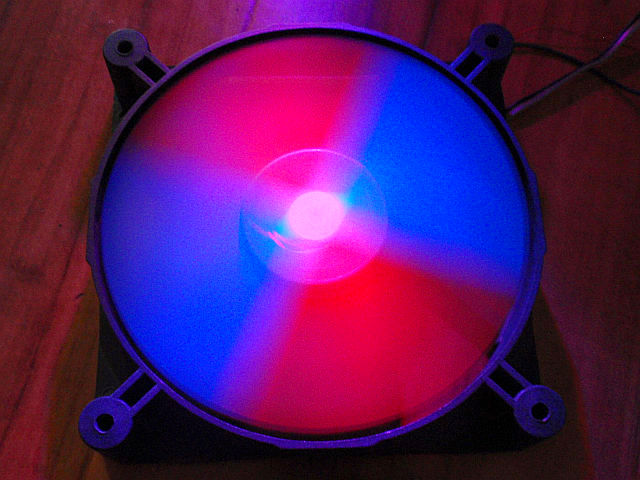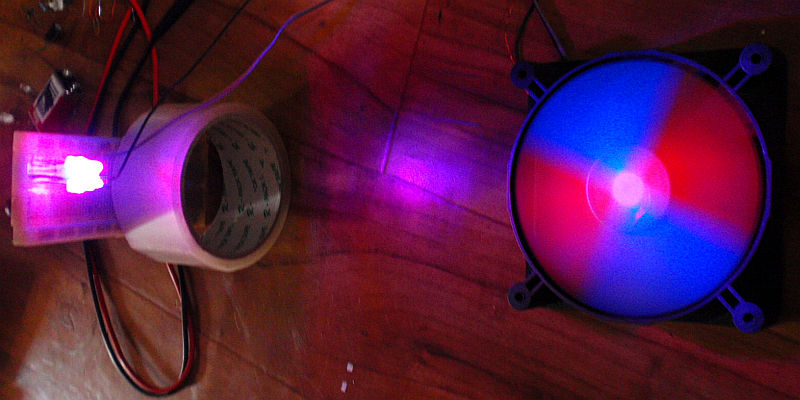This effect can be connected to almost any brushless fan (the "PC fan").
I used a 12 cm fan. Brushless fan uses a logical Hall sensor.
In my case it was the sensor with two outputs of open-collector type - always one output is open and one closed.
These outputs are connected to a double coil of the motor.
Outputs are usually rated for max current of 300-800 mA. Maximum input voltage of sensor is usually 18 - 24V.
They are usually resistant against reverse polarity, but don't rely on it.
Most of fans use sensor like 276 or 277. Pin connection is almost always the same.
In Fig. 1 you can see the schematic of simplest fan with two coils.
Some also tend to have a parallel capacitor to power and protective capacitors or RC networks between the output and the negative pole.
I added the fan a simple color LED light effect, see diagram in Fig. 2. LEDs are connected together antiparallel way.
You can also connect more pairs of antiparallel LEDs in series or series-parallel. The value of R1 can be edited.
During each fan revolution, Hall probe is tilted back and forth twice. As a result, color LEDs
change the color in one direction and back twice per revolution. Switching of colors is synchronous with the rotating fan.
The effects operates on a principle of static stroboscopic effect, see photos below.
I used 3 blue and 3 red ultra bright color LEDs - 3 pairs in connected series.
Hall sensor magnetic field detector is also described in this article:
Hall sensor - magnetic field detector .
